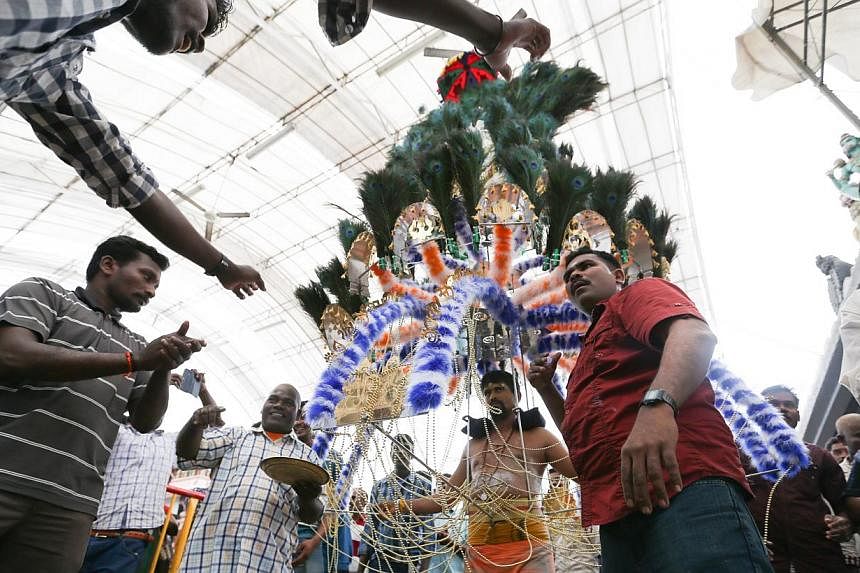Rules for street processions, including the use of musical instruments, have been put in place to manage events for the greater public good, Second Home Affairs Minister S. Iswaran said on Thursday in comments on reports of a scuffle during the Thaipusam procession.
He said there had to be a balance between allowing important religious events to take place, and preserving order.
A long-standing ban on playing musical instruments during such processions has been in place as a result of past instances of fights between competing groups of musicians, and disruption to the procession and to devotees.
Regulations are made known to participants clearly, he said, adding that the vast majority over the years have had no problems complying with the requirements.
He was speaking in Madrid to Singapore journalists after online videos showing the scuffle sparked debate about the incident and the rules on playing of musical instruments.
On Tuesday, organisers asked a group to stop playing drums at the junction of Serangoon and Desker roads. Police were called. A scuffle ensued and three Singaporean men were arrested.
Mr Iswaran is accompanying Prime Minister Lee Hsien Loong on an official visit to Germany and Spain.
In addressing the ban on playing instruments during such processions, a rule which came into force in 1973, he noted that the Hindu Endowments Board (HEB) allowed musical instruments to be used within the temple premises.
He also said that there is a provision that religious hymns could be sung, "which is in keeping with the sanctity and the spiritual nature of the event".
Setting the context for these rules, he said Thaipusam is a very important religious occasion for Hindus. Between 9,000 and 10,000 devotees carry kavadis and milk pots during the annual procession.
The Government recognises the event's significance and sanctity for the Hindu community. This is why, even though religious foot processions had been banned since the 1964 racial riots, special concessions and provisions were made for Thaipusam and two other Hindu festivals, he said.
But the scale of participation at Thaipusam and the fact that the 4.5km procession goes through major roads meant that the HEB had to work with authorities to ensure the event's peace and safety.
As a result, rules on musical instruments were needed, he said.
Tuesday's incident, which police are investigating, involved "a small group who behaved in an unruly manner and without heeding police advice and warnings. We should let the investigations take their course and then we see what the outcomes are".
The larger point of note, he said, was that in Singapore's multi-religious society, everyone had to make accommodations and concessions:
"There must be mutual understanding and respect for each other's practices whilst we celebrate our respective festivals or events. We also need to take into account the need to maintain an overall balance in society in order to preserve safety and law and order. That's the context in which we should look at this.
"We shouldn't allow the actions of a few individuals to disrupt the kind of harmony we have worked very hard to preserve over the years."
He was also concerned about misrepresentations and rumours about the incident and called for people to exercise calm and restraint: "If there are any concerns or issues, let's take them up. We have the due process and we have channels to deliberate on those, and we can see what outcomes can be achieved."
This story was corrected on Feb 6, 2015. An earlier version of this story stated that the ban on playing instruments during such processions was enforced in 1974. Mr Iswaran has clarified that the rule came into force in 1973.

